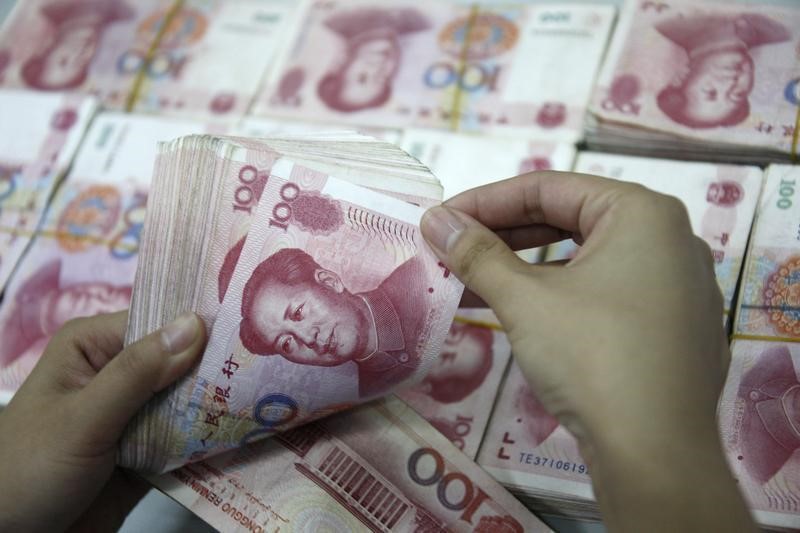By Patrick Graham
LONDON (Reuters) - China's yuan has a solid case for being judged a reserve currency by the IMF in a decision due early next month, according to a senior civil servant dealing with the development of Britain's financial links with China.
The comments by Treasury director Katharine Braddick follow signs China is making quiet progress on creating the market infrastructure needed to make the yuan, or renminbi (RMB), fully convertible. Braddick chairs the London Hong Kong RMB Forum and is Britain's member of the EU's Financial Services Committee.
Convertibility is the central condition for inclusion in the basket of currencies used to value the International Monetary Fund's Special Drawing Rights, a virtual currency that defines the value of IMF reserves and its emergency payouts to members.
Asked on the sidelines of a banking seminar on China if Britain supported the yuan's admission, Braddick said: "I personally think there is a sound evidence base, but the IMF will need to look at it in considerably more detail.
"The yuan is clearly trading, it will be an investment currency, it is here to stay," she added.
Britain and other G20 members are jostling for position as financial partners for China but when the SDR issue came up around the IMF's spring meetings, U.S. Treasury Secretary Jack Lew said the yuan was not yet ready for inclusion.
Sources told Reuters earlier this week that Beijing would soon extend trading of the yuan in China to overlap with European trading hours, encouraging more international use of the yuan and supporting its case with the IMF.
Bankers and economists at events this week in London, the biggest hub for yuan trading outside Asia, said there were still problems with the depth of liquidity of yuan markets, chiefly relating to the lack of an easily accessible market in Chinese government bonds.
Most stressed that the decision on the SDR, which a number said they expected the Fund to announce on Nov. 4, was a potential turning point for the development of the yuan and opening up of Chinese capital markets.
"I think eventually, this year or next year, the RMB will be included," said Dr. Fan Gang, an independent member of China's Monetary Policy Committee until 2010 and a well-known academic economist.
"It will further accelerate use of the RMB. But I would emphasise the importance of the bonds.
"You need bonds (for central banks) to hold as reserves and that is the uncertainty, because the Chinese government does not want to issue too much more debt."
